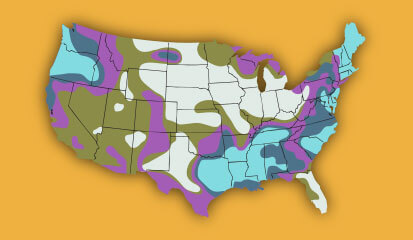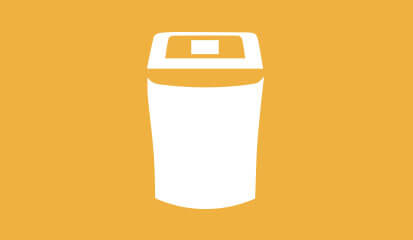4 Features to Help You Find The Best Water Softener for Your Home
4 Features to Help You Find The Best Water Softener for Your Home
Hard water is a common problem in the home, but if you’ve gotten used to its taste and smell, you might not realize that your water is any different than soft water. Unfortunately, hard water can lead to subtle issues like stained appliances and discolored batches of laundry and dry skin. If you’re noticing issues like these, a hard water softener might be just what you need to resolve the issue.
A water softener does more than remove calcium and magnesium (the main contaminants that create water hardness), it also provides a wide range of secondary benefits. Whirlpool water softeners help to extend the life of your plumbing, saving you money in the long-term. What’s more, a water softener can remove iron, improving the overall taste and quality of water from your home’s taps. There’s much more to an effective water softener than meets the eye, so read on to learn the hard facts.
The Best Water Softener Has the Right Grain Count
Shopping for the best water softener starts with understanding the terminology commonly used for these products. If you’ve ever compared water softeners, you’ve probably noticed product descriptions that included the word “grains.” What are grains and why do they matter in your search for the ideal water softener? We’re here to help you make sense of the numbers.
What is Water Softener Grain Count?
A common way to assess the effectiveness of a water softener is a measurement known as grain count. To understand grain count, you first need to understand grains per gallon (GPG). This figure is a measurement of water hardness, and you can use it to determine the best water softener size for your home.
One grain equals the hardness of a gallon of water containing 1/7000th of a pound of dissolved calcium and magnesium. These are the minerals that lead to hard water so it’s important to understand their presence in your water before you make a water softener purchase. A hard water map can give you an idea of the hardness level of your water. You can also view your area’s annual drinking quality report (from your municipal water provider) to learn more specifics about your water. If this option is not available, you can request a free test kit from HomeWater 101 that serves the same purpose.
Once you determine the level of grains per gallon in your home’s water, you can calculate the best water softener you need to install. Start by multiplying the number of people in your home by 80, which is the average number of gallons of water a person uses each day. Take this result and multiply it by the number of grains in your home’s water. This figure represents the number of grains your water softener will need to remove daily. With these numbers in mind, you can start to shop for a softening unit that meets or exceeds your grain count requirements and begin enjoying dependably soft water.
The Best Water Softener Removes High Iron Levels
While grains of calcium and magnesium cause problems with water hardness, it’s high iron levels that can further complicate things for homeowners. Although typically found in trace amounts, iron levels rise above 0.3 mg/l, can lead to water discoloration, a metallic taste, stains, deposits and other aesthetic issues in the home.
Iron in trace amounts is not harmful to one’s health, but the downsides that come with iron in tap water outweigh any nutritional benefits.
How to Test Iron Levels in Your Water
The easiest way to identify iron in water is with your own senses. Some of the telltale signs of iron in water include:
- Color: cloudy, yellow, or a reddish-brown
- Taste: unpleasant and metallic
- Odor: metallic
Much like water hardness, you can test for high iron levels with a DIY kit. These are relatively affordable and easy to use. If you’d like a more detailed and accurate report on the iron concentration in your water, you can request a laboratory analysis that will provide all the information you need about your water’s iron concentration level.
The Value of an Ultra High Flow Valve
In order for a water softener to work effectively throughout an entire home, you want to make sure it can handle the demands of everyone who lives there. Every Whirlpool water softener comes equipped with an ultra-high flow valve that is designed to provide a consistent flow of pressure for multiple appliances.
What does that mean when you turn on the faucet? Provided that the rest of your plumbing system is working correctly, you will get a consistent flow of soft water at all times. One of the most important factors to consider before installing your softener is the pressure of your water supply, which should not exceed 125 psi. You can use a water pressure gauge to determine your home’s water pressure at the source. Whether you’re rinsing dishes, bathing or simply enjoying a glass of water, dependability comes standard with our range of water softeners.
The Best Water Softeners Conserve Energy
A water softener is a great addition to a home, but you need to know that it will also work efficiently to prevent steep energy bills and reduce your environmental footprint. In order to soften water without wasting energy, our products use demand initiated regeneration technology. This process ensures that regeneration cycles only take place when necessary, rather than on an inefficient set schedule.
All Whirlpool water softeners use Demand Regeneration Technology, which can save homeowners:
- Salt
- Water
- Energy
- Money
Every regeneration cycle uses resources, and our products are designed to minimize the amount you need to enjoy soft water every day. When it comes to water softeners, our set-it-and-forget-it solution makes sense for anyone with a busy lifestyle.
Combine Your Softener With the Best Central Water Filtration System
Want the best possible water quality in your home? Combining a water softener with a water filtration system ensures that your purification system covers a larger number of common contaminants than a water softener alone. While your softener will remove calcium, magnesium and iron, a filtration system takes purification a step further by eliminating sediment, chlorine and other problematic contaminants. Together, a softener and a filtration system work together to provide a constant supply of refreshing water that tastes great and is free from a long list of impurities.
Combine These Features With the Best Hybrid Water Softener
If you’re looking for a product that addresses several of your water quality concerns with a single device, one of the best hybrid water softeners is the Pro Series – Softener/Whole Home Filter. In addition to being an efficient 31,000-grain water softener, this product is also outfitted with a filter to remove other contaminants commonly found in tap water. What’s more, it automatically flushes, cleans and drains its carbon bed and filter screen, simplifying maintenance for owners.
Wondering what else you need to enhance the purity of your home’s water? See how our Water Softener Cleanser can help keep your water softener system running smoothly by removing iron and scale buildup in your equipment.


